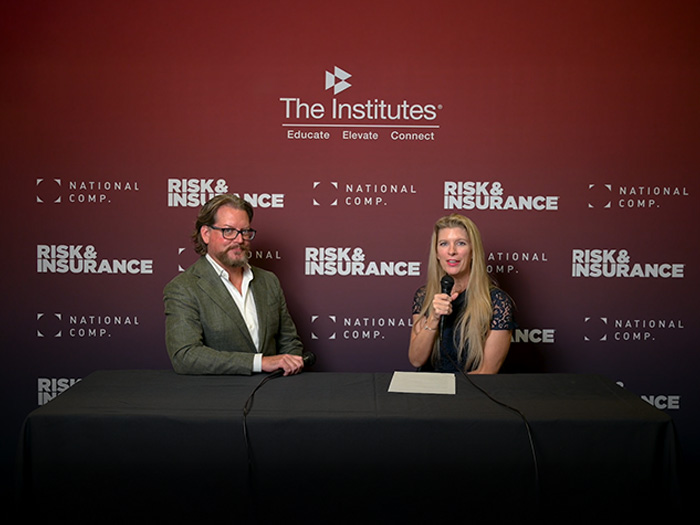Cryptocurrencies, White Collar Crime, Health Care Fraud, You Name It. Why Heavier Regulatory Risk Is Upon Us

The Biden administration is cracking down on white collar crime.
In his first year, the president and new attorney general have announced a series of policy changes that aim to toughen up the federal response to white-collar crime.
Among their top concerns include increasing transparency around corporate misconduct, address COVID-related fraud and increased regulation.
Other federal and state agencies are likely to follow their lead, with new regulatory actions and substantial a double-down on enforcement efforts into next year.
COVID Scams Abound
From cyber scams to the business of selling fake vaccine cards, COVID-related crime is surging.
Michael B. Himmel, chair of Lowenstein Sandler’s white collar criminal defense practice and partner in the securities litigation practice, notes the rainbow of fraudulent activity surrounding COVID relief programs, and more recently, vaccine attestation as new risks to be contended with.
“As a consequence of the CARES Act, five different types of fraud emerged that I know the government has been looking at,” he explained.

Michael B. Himmel, chair, white collar criminal defense, Lowenstein Sandler
He laid out the following examples:
“One is price gouging; the second is misrepresentation of individuals seeking reimbursement from the government; the third is the use of stolen identity in which individuals are applying for unemployment insurance claiming they lost their jobs due to COVID,” he said.
“[Another] is cyber fraud, which is for example when an entity or individual emails another entity or individual about seeking an SBA loan but they’re actually phishing, and then last but not least, is the sale of phony vax cards. That last one is happening more than ever before.”
As recently as October 25th, 2021, the Department of Justice underscored Himmel’s point with a bulletin urging Americans to be on high alert for COVID-related scams.
One of the main COVID scams Himmel is seeing relates to the CARES program. Cyber criminals are sending out phishing attacks that claim to come from the U.S. government.
“Law enforcement has seen fraud schemes using smartphone apps or websites that claim to be a government office associated with CARES Act programs. These fake sites are requesting PII, including banking information, to deposit stimulus payments. Perpetrators then will use this information to debit money from the consumers’ bank accounts.”
The bulletin further lists among scams attempts at phishing by asking for stimulus fund balances to be returned and unsolicited calls from agencies like the IRS.
Expanding SEC Oversight
Aside from COVID, Himmel also has his eye on new priorities from the U.S. Securities and Exchange Commission (SEC).
In particular, those related to diversity, equity, and inclusion and how investment firms are selling these values as part of a larger investment strategy.
“The SEC recently has said that they’re going to take a look at funds that are getting investors to invest based upon certain entities where they promote diversity, equity and inclusion,” Himmel explained.
“What we’re going to start seeing is the SEC looking at some of these entities that these funds are investing in to really see if, in fact, they are promoting DEI. In particular I’m talking about funds – hedge funds, whatever the funds might be – that are suggesting to investors that they are investing in entities that promote this. The SEC is going to take a peek and see what’s really happening.”
What this new aspect looks like in terms of enforcement is not yet clear, however. SEC enforcement activity generally is trending upward. The agency reported that it filed 434 new enforcement actions in fiscal year 2021, representing a 7% increase over the prior year.
In the same press release, the SEC also touted “judgments and orders for nearly $2.4 billion in disgorgement and more than $1.4 billion in penalties, which represented a respective 33% decrease and 33% increase over amounts ordered in the prior fiscal year in these categories.”
Cryptocurrency, already a priority for the IRS, has its own section in the SEC enforcement action report, and Himmel sees that as another area to watch.
“The IRS takes the position that cryptocurrency is an asset, and I’m not suggesting they’re wrong,” he said.
“What they’ve tried to do in viewing it as an asset is developing what I’ll call money laundering cases. I’m not sure how successful they have been in the past, but what the Department of Justice and the U.S. Attorney’s office have been looking at has been several things —scams where initial coin offerings are fabricated, Ponzi schemes, market manipulation schemes where they’re trying to enhance the value of the coin when it really shouldn’t be.”
“And most recently, the U.S. Attorney’s office in California seized $56 million that they believe was fraudulently obtained by an individual.”

Michael B. Himmel, partner, securities litigation, Lowenstein Sandler
In that case, against BitConnect, the defendant pleaded guilty on September 1 to defrauding investors. The DOJ is still actively seeking victims of this scam.
Regulatory Trends in 2022
As we approach a brand-new enforcement year, Himmel says he’s following the trends coming out of the U.S. Attorney’s Office very closely. “Our clients in the business space are concerned,” he said, noting the track records and public statements of both Attorney General Merrick Garland and new Deputy Attorney General Lisa Monaco.
“Lisa has spoken on a few occasions about prosecuting cases from consumer protections to the environment. And it’s been years, and years, and years since we’ve heard about criminal cases involving the environment,” Himmel said.
“I think that’s real and it’s going to come back.”
In terms of general advice, Himmel opined that the financial services sector should expect firm but fair oversight.
“I would say as a consequence of Garland and Monaco and Gary Gensler [current head of the SEC] they’re going to be vigilant. They’re going to be looking at Wall Street; they’re going to be looking at the banks.”
“And I think compliance officers — including compliance officers I’ve spoken to — are going to be on the lookout. Unlike in the past, DOJ and SEC have said that the financial space is going to be a priority.”&










